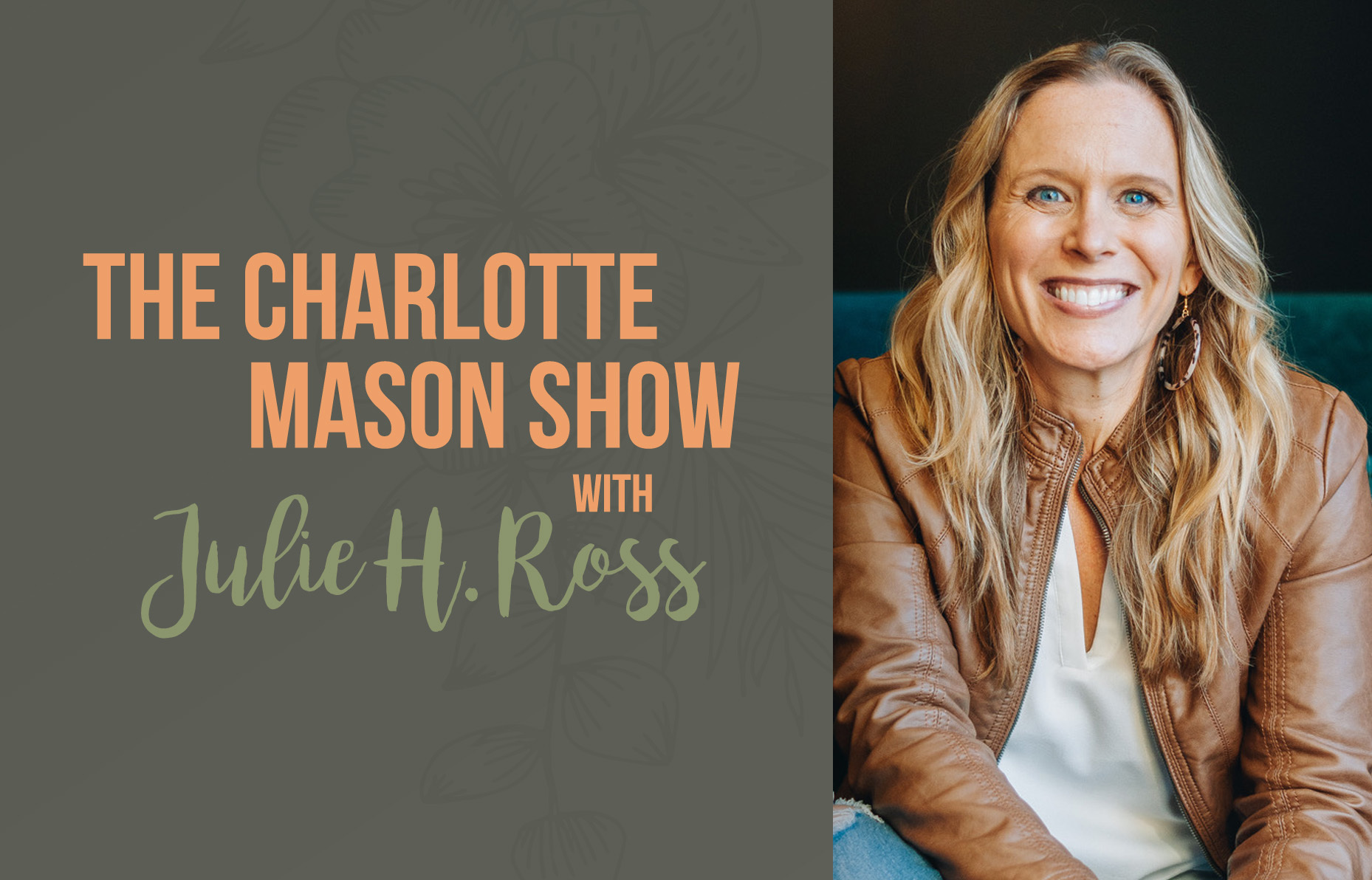CM 20: Audioblog- Leah Martin Charlotte Mason and Boys
Links and Resources:
Show Transcript:
CM EP 20 Leah Martin
Julie -
Welcome to the Charlotte Mason Show, a podcast dedicated to discussing Ms. Mason's philosophy, principles, and methods. It is our hope that each episode will leave you inspired and offer practical wisdom on how to provide this rich, living education in your modern homeschool. So, pull up a chair, we're glad you're here.
Today's episode of the Charlotte Mason show is brought to you Medi-Share. Find out more about this affordable Christian alternative to traditional health insurance at MediShare.com.
Leah -
Traditional school can be hard for boys. They're expected to sit most of the day, stay inside, and for the most part, they have to keep quiet. Honestly, wouldn't those conditions be hard for anyone?
When I left public schools to teach at a Charlotte Mason school, I had many more boys in my class than girls. My first-year teaching there, I had three girls and thirteen boys. The off-balance dynamic was true across the board. Every teacher in the school had many more boys than girls.
That's when I began to understand that the Charlotte Mason philosophy is so good for boys. When my first son was born two years ago, I expected him to be just like my daughter, but a boy. Even with my teaching experience, I didn't realize just how different boys and girls are. Now that I'm the mom of two boys, I am so thankful that we use the Charlotte Mason philosophy in our home and homeschool so that we can better meet our boy's needs.
There are so many reasons why Charlotte Mason is good, beautiful, and true. But here are just a few reasons why I think it especially meets the needs of boys.
Number one: Outdoor time. Being outside used to be a favorite pastime for all children. Most men I know have precious memories of exploring the great outdoors for hours on end. But with increased time spent in extracurricular activities, screens that keep kids glued to the couch, and the fear of dangers lurking outside, outdoor time has decreased tremendously since the 1970s. Charlotte Mason's philosophy stresses outdoor time for children, especially during the early years. This helps boys burn energy, which is crucial to their behavior, and also allows them to use the innate sense of adventure. Studies also show that playing outside increases a child's problem-solving skills and ability to collaborate with others. These skills are so often missed in traditional forms of education.
Number two: Habits. In the US, 13.2% of boys ages 4 through 7, have been diagnosed with ADHD. The Charlotte Mason philosophy looks first to habits before labeling children. When I was a public-school teacher, it never occurred to me that I should work on the habit of attention with my students. I don't doubt that ADHD is a legitimate disorder. I do think that helping boys develop the habit of attention can prevent some borderline cases from being diagnosed. Other physical habits that Charlotte Mason recommends, like managing one's own body, self-restraint and indulgences and fortitude can help boys develop in areas where they are often punished in schools.
Number three: Respect. Just like grown men, boys need respect. Many management systems that I use in our culture put boys to shame and don't recognize their need for respect. Charlotte Mason's first principle, children are born persons, recognizes that children are actual humans and have actual human rights. A harsh word or a shameful look is enough to make any boy or child shut down and decide that learning isn't for them. Coming alongside our boys and learning with them, becoming their friendly ally, does much more to motivate boys than the carrot on a stick reward system.
Number four: Worthy work. My husband learned the value of hard work at an early age. He grew up on a farm so there were chores to be done around the clock. He learned to value the work because it was worthy. He saw the need for it and the importance of what he did. Similarly, the tasks of a Charlotte Mason education are worthy. Children discuss beautiful ideas and produce beautiful work. There are no cutesy crafts or meaningless worksheets. Building real things is a part of handiwork, and that gives all children, but boys, in particular, a sense of accomplishment and usefulness.
Number five: Good books. Boys are often more reluctant readers than girls. This is a major generalization, I know, but this is what many teachers have noticed. There's a saying that teaches action repeat about boys and reading. It's not that he doesn't like reading. It's that he hasn't found the right books. I didn't understand how true this was until I learned the Charlotte Mason philosophy. During my time teaching at the Charlotte Mason school, I had several boys join my class from public school classrooms. Their parents told me, "He doesn't really like reading." At their old schools, they read excerpts from longer books or stories, especially written for their textbooks. It didn't take more than a few weeks of reading Benjamin West and his cat, Grimalkin, or Call It Courage for these boys to completely change their stance on reading. Reading stories of heroes and bravery inspires boys with ideas that will help shape them into Godly men.
I'm sure that together, you and I could think of dozens of other reasons why boys flourish under Charlotte Mason's wisdom. But I hope this inspires you to pursue your son's Charlotte Mason education with confidence.
This post was written by Leah Martin, of MyLittleRobins.com, and it appears on Purposeful Motherhood.
Julie -
Thank you for joining us today on the Charlotte Mason Show. I'm your host, Julie Ross, and I would love to meet you in 2020. I will be at all seven Great Homeschool Conventions speaking as part of their Charlotte Mason track. Go to GreatHomeschoolConventions.com to find one near you. If you want more information on what was shared in today's podcast, go to homeschooling.mom for the show notes. Also, don't forget to subscribe to this podcast in iTunes or Google Play, so you never miss an episode. Until next time.
A Special Thanks to our sponsors:






